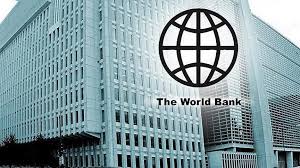The Federal Ministry of Education in partnership with the World Bank and other stakeholders have begun implementation of the National School-Based Deworming Programme (NSBDP) in the country.
Mr Peters Ojonuba, Institutional WASH specialist with the World Bank assisted Sustainable Urban and Rural Water Supply and Sanitation Sector Project (SURWASH) programme said this in Abuja on Thursday.
He said told the objective of the deworming programme was to eradicate parasitic worms as a public health problem in Nigeria.
School-based deworming is a low-cost effective program that takes advantage of existing school structures and trains teachers to administer deworming treatment (safe tablets) according to WHO guidelines to school students.
According to him, the Federal Government recognises that the health and education of Nigeria’s children drive the country’s future.
He noted that Federal Government was also committed to meeting the Sustainable Development Goals which aims at providing quality life to all citizens by the year 2030.
He said personnel from Ministries of Education and Health were playing a joint leadership roles in ensuring that the programme was implemented in every public and private primary school within the targeted treatment area, starting from Gombe State.
“Therefore, through the NSBDP, the Government seeks to improve the health and education status of its children and secure Nigeria’s future.
“The NSBDP is implemented by the Ministry of Education in collaboration with the Ministry of Health with technical assistance from World Bank and Evidence Action.
“Our target is to reach every child aged 2-15 years whether they are enrolled or not enrolled in school”.
Ojonuba added that the WHO had confirmed that deworming tablets can be safely administered by teachers with support from the local health system.
He said key elements of the programme would include; facilitating teacher training, distributing tablets to schools, managing community sensitization activities and monitoring the deworming treatment.
He added that the trained teachers would administer treatment to all enrolled, non-enrolled and early childhood development children.
He enjoined all relevant stakeholders to join hands together to ensure the successful implementation of the programme.

